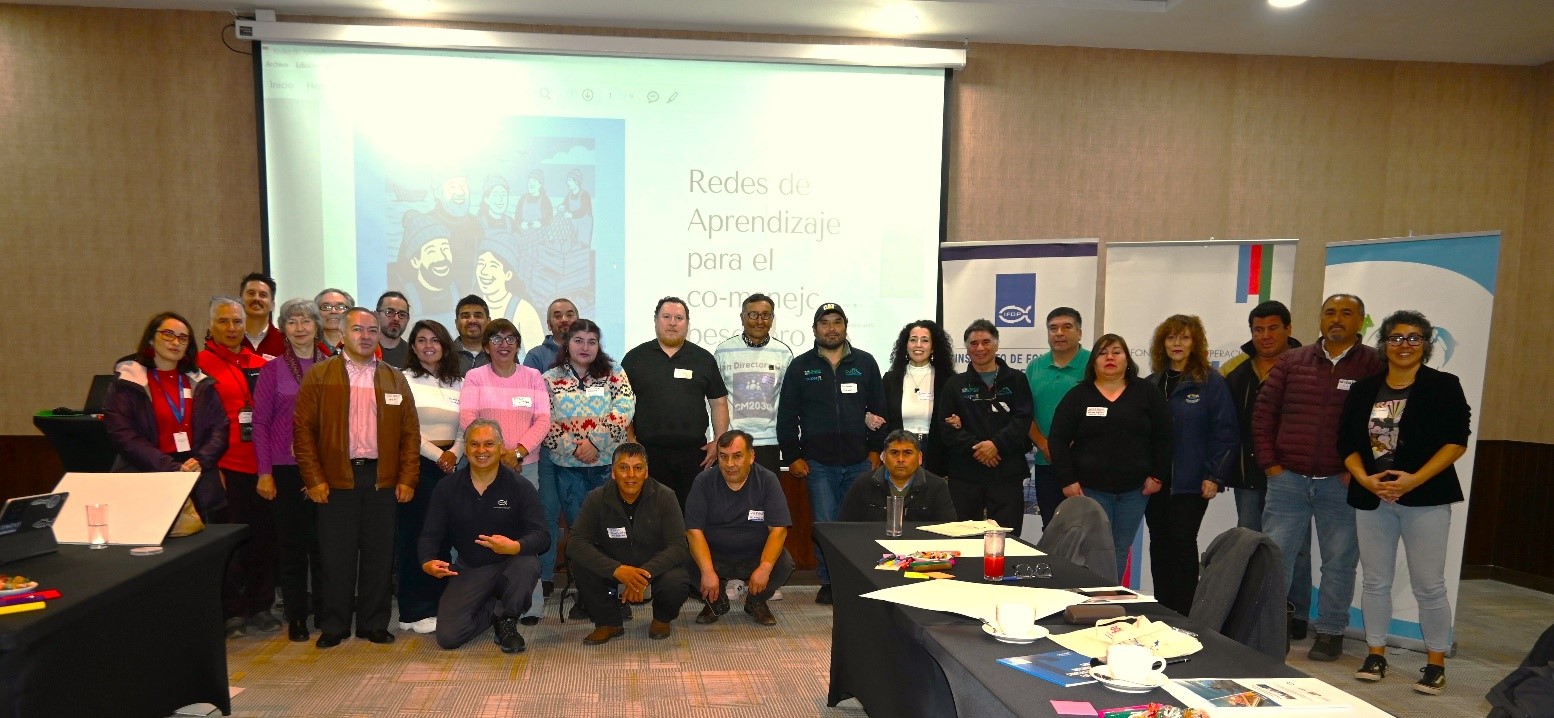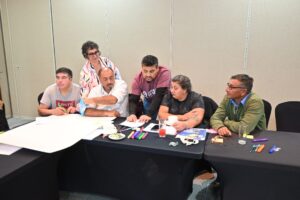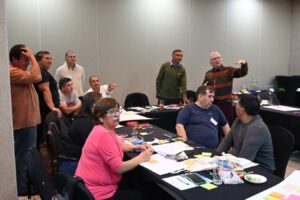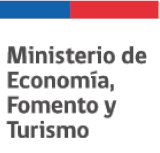

 The project, financed by the Chile-Mexico Fund and implemented by the public institutes IFOP and IMIPAS, incorporates the principles of gender equality, inclusion, aquaculture and fisheries technology training, and climate change.
The project, financed by the Chile-Mexico Fund and implemented by the public institutes IFOP and IMIPAS, incorporates the principles of gender equality, inclusion, aquaculture and fisheries technology training, and climate change.
Santiago, July 2025. A total of 33 people, including members of the Benthic Fisheries Management Committees, technicians, and researchers, successfully completed the first training session within the framework of a cooperation project that seeks to develop co-management processes for small-scale fisheries, with an emphasis on benthic resources on Chiloé Island, Ancud Bay, in southern Chile. and in the towns of Celestún, Sisal, Progreso, and Río Lagartos in Yucatán, Mexico, which incorporate the principles of gender equality, inclusion, aquaculture and fisheries technology training, and climate change.
The workshop also included technicians from the Undersecretariat of Fisheries and Aquaculture, the Chinquihue Foundation, the National Institute for the Sustainable Development of Artisanal Fisheries and Small-Scale Aquaculture (INDESPA), researchers from the Fisheries Development Institute (IFOP) and the Austral University of Chile, along with professionals from the non-governmental organizations Conectar para Conservar (CPC) and Comunidad y Biodiversidad, A.C. (COBI).
 The project includes two co-management training sessions for members of Management Committees in Chile. The first was recently held in the city of Puerto Montt. Four modules were delivered over two days of continuous work, focusing on achieving the proposed specific objectives: understanding what a learning network is and how it can help us achieve our goals; sharing lessons learned about fisheries co-management and how it applies to Management Committees (MCs) and Fisheries Management Plans; reaching a consensus on the importance of fisheries monitoring co-led by fishers; and reflecting on why gender equality is important for fisheries governance.
The project includes two co-management training sessions for members of Management Committees in Chile. The first was recently held in the city of Puerto Montt. Four modules were delivered over two days of continuous work, focusing on achieving the proposed specific objectives: understanding what a learning network is and how it can help us achieve our goals; sharing lessons learned about fisheries co-management and how it applies to Management Committees (MCs) and Fisheries Management Plans; reaching a consensus on the importance of fisheries monitoring co-led by fishers; and reflecting on why gender equality is important for fisheries governance.
In the opening session of the workshop, IFOP project leader and senior researcher Nancy Barahona Toledo presented the rationale and progress of the Chile-Mexico binational project, which aims to strengthen capacities for fisheries and aquaculture co-management in small-scale fisheries, as a concrete contribution to the design and implementation of more inclusive and sustainable public policies. He emphasized that the overall objective of the project is to develop effective co-management processes through coordination between fishers, academia, and local and regional governments, incorporating principles of gender equality and inclusion. To this end, he indicated that the project aims to consolidate a comprehensive capacity-building system, where technical knowledge and local expertise are intertwined to improve the management of marine resources exploited by coastal communities in both countries.
Meanwhile, the head of the SSPA’s Benthic Resources Unit, Mario Acevedo Gyllén, presented an updated overview of the artisanal fishing sector and underscored the importance of Management Committees as key institutional spaces for advancing the sustainability of small-scale fisheries, especially in the face of the challenges of climate change, resource overexploitation, and socio-environmental conflicts in coastal territories.
The fishermen and women presented various topics, such as prioritizing oversight and implementing effective monitoring at landing centers so that the Management Committees can be decisive and support the problem of illegal fishing and unregulated migration. The testimonies, diagnoses, and shared reflections confirm that co-management is not merely a technical instrument, but a living path of participatory governance that connects territorial experience with decision-making and ecosystem resilience. The learning network technique proved to be a powerful tool for building trust, exchanging solutions, and highlighting common challenges, from the lack of oversight and the binding power of the Committees to the urgent need to incorporate gender and youth perspectives into fisheries governance.
This activity was led by Layla Osman, director of Conectar para Conservar and leader of Co-management2030, who presented the foundations of a Learning Network for Fisheries Co-Management, conceived as a strategic tool to strengthen capacities, articulate territories, and influence public policies through Management Committees.
Professionals such as Neyra Solano, from COBI, participated in the various modules, addressing “Gender Equality in Marine Governance” for the Learning Network in Chile. A reflection was presented on the importance of integrating gender equality into marine governance, highlighting that it is not possible to advance toward sustainability without addressing the social inequalities that plague coastal and fishing territories. Basic concepts such as “governance,” “equality,” and “equity” were also addressed in order to understand each of them individually and identify how they interconnect. The presentation was based on the premise that “governance implies that all people can participate in the decisions that ensure a dignified life. In this context, gender equality is not just an ethical goal or a cross-cutting principle, but an enabling condition for sustainability, resilience, and environmental justice.”
With questions such as “Can gender inequality affect marine governance?” and “How could gender equality improve the management of fisheries resources?”, the presentation sought to engage participants in reflection about their daily activities in the fishing sector, providing clear examples, as well as scientific evidence, of how equal participation of women and men in fisheries and marine conservation can lead to more sustainable and lasting results.
The workshop concluded with an invitation to build this network based on trust, co-responsibility, and joint action, understanding co-management not as a technical tool, but as a collaborative and transformative way of life. Caring for the oceans begins with caring for the people who inhabit and work them. The future of co-management in Chile will depend on our collective capacity to build trust, learn from networks, and sustain governance processes that place communities and territories at the center of the activity.
This project is funded by the Chile-Mexico Joint Cooperation Fund, the result of the Strategic Partnership Agreement signed between the Republic of Chile and the United Mexican States in 2006. It is led by the Chilean Agency for International Development Cooperation (AGCID) and the Mexican Agency for International Development Cooperation (AMEXCID). Since its creation, this Fund has financed the implementation of more than 230 initiatives.
Press related links:




